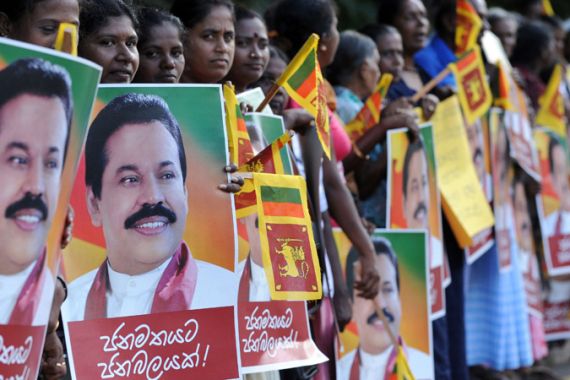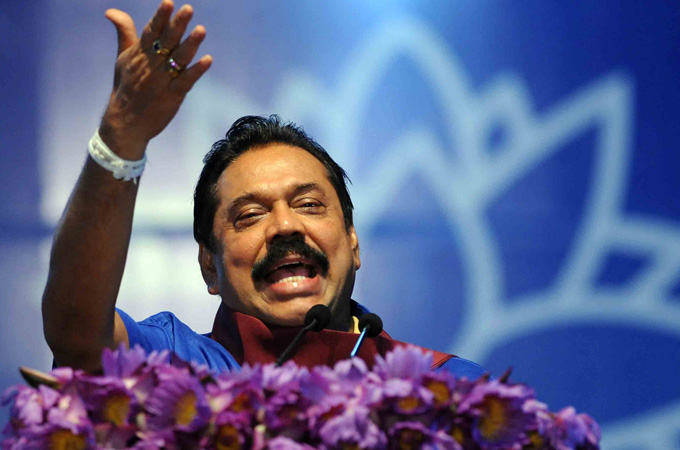Sri Lanka set for constitution vote
Amendments aim to abolish two-term presidential limit and hand Rajapaksa greater control over independent institutions.

 |
| The proposed amendments will give Rajapaksa greater control of the police and the judiciary [AFP] |
Sri Lanka’s parliament is set to vote for constitutional changes enabling Mahinda Rajapaksa, the country’s president, to seek a third term in office.
Under the proposed amendments, to be put to the vote on Wednesday, the two-term limit will be abolished, allowing the Rajapakse, 64, who was re-elected in January, to stand at the next polls,
scheduled for 2016.
A draft bill was cleared on Tuesday by the supreme court, which informed parliament that the constitution could be changed by a two-thirds majority vote – something Rajapaksa looks almost certain to secure.
The amendment, if approved, will also hand him greater control over nominally independent institutions, giving him powers to appoint officials to crucial posts in the judiciary, police, election commission and the central bank.
Contrary positions
Rajapaksa’s most ardent backers – his party, the state media and his three brothers, who hold senior public positions – say the changes are needed to secure the post-war recovery of the country.
They also point to a requirement under the amendment for the president to appear before parliament every three months – though this nod to accountability is limited by the inability of politicians to challenge the head of state.
However, opponents of the move – some of whom held protests in the capital, Colombo, on Tuesday – say that the changes point to the country’s slide into an autocracy.
“Do not pass the 18th amendment. The progressive people of this country, the patriotic people are against this. That is why we have surrounded parliament today to force the government to stop this,” Tilwin Silva, secretary-general of the Janataha Vimukthi Peramuna (JVP) Party, said.
Dozens of lawyers – another group angered by Rajapaksa’s move – held their own protest outside the supreme court, at the end of which they burned a coffin to symbolise the death of democracy.
Opposition line-up
The main opposition United National Party (UNP) and the Tamil National Alliance (TNA) are expected to vote against the changes.
“The amendments are intended to perpetuate the authoritarian rule under the facade of constitutionality,” Harsha de Silva, a UNP politician, said.
The TNA, once seen as a proxy of the defeated Tamil Tigers, said the amendments encouraged “unhealthy political influence” and jeopardised good governance and the rule of law.
The proposed amendments have also angered some religious groups, who have criticised the lack of public scrutiny of the bill.
“It will inevitably lead to a further, dangerous politicisation of our national institutions and a speedier, destructive erosion of our already fragile democratic culture,” Duleep de Chickera, the head of the Sri Lankan Anglican church, said in a statement on Tuesday.
The Ceylon Federation of Labour, an independent labour union, has also criticised the legislation.
“It is time that all democratic forces wake up to the danger the country faces. President Mahinda Rajapaksa is already king,” it said on Tuesday.
Immense power
Rajapaksa, who oversaw the defeat of the separatist Tamil Tigers in May last year after decades of conflict, already stands accused of using the immense power of his office to stifle any opposition.
“The amendment is seen as marking the end of liberal democracy in Sri Lanka,” the Hong Kong-based Asian Human Rights Commission said, labelling the day Black Wednesday.
Rajapaksa, who grew up in the rural south, says his urban opposition critics in Colombo are simply biased because of his background.
“They fear I will secure a third term,” he told newspaper editors on Monday.
“But they [opposition political parties] would not have resisted so fiercely if someone with an elitist background had sought to do so.”